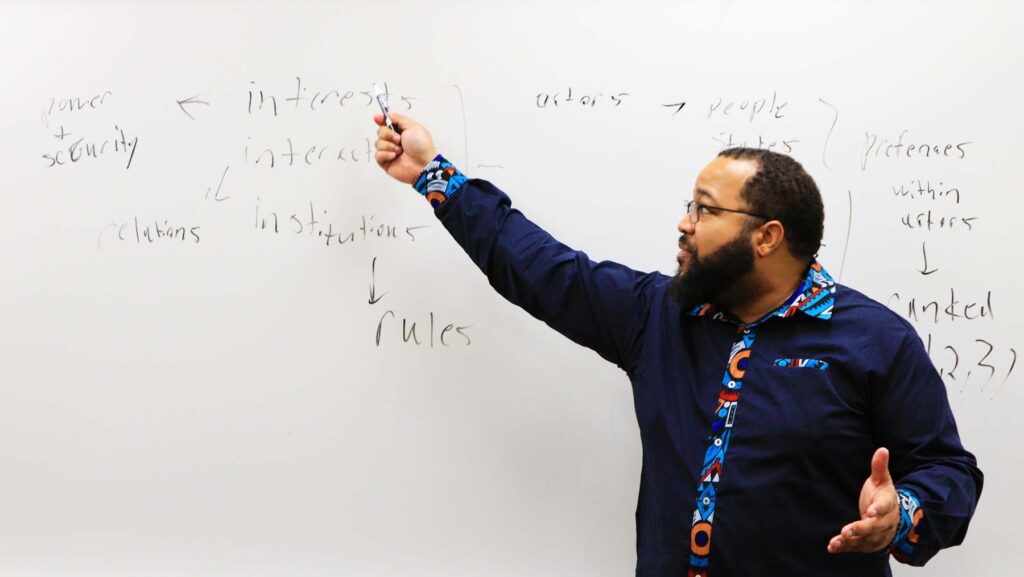Teaching Philosophy Summary

For more information about my teaching and pedagogical development, please view the documents below.
I believe that the role of a teacher is that of a facilitator to encourage students to engage thoughtfully and meaningfully with a subject and to help students to see the relevance of the subject matter to their academic experience and personal lives. The field of Political Science is diverse, but at its core, it seeks to understand the institutions and environments that influence political behavior. My goal is to help students be more aware of the presence of politics in their daily lives and to develop analytical and systemic thinking that can be used for general problem-solving and critique. I work toward these goals by fostering a collegial learning environment where students have an active role in the learning process, frequently seeking student input during the courses and structuring assessment practices to promote student engagement. To help refine my pedagogical practices, I completed the College Teaching Certificate at the Chicago Center for Teaching and Learning and have taken additional training through the College of Charleston Center for Excellence in Teaching and Learning.
Courses Taught/Prepared to Teach
Introductory Courses
Introduction to World Politics
Race, Equity and Politics in the United States
Race, Equity, and Politics in the World
Upper-Level Electives
Politics of Latin America
International Development: Theories and Practice
Black Social Movements in Latin America
Contemporary Brazilian Politics
Theories of Ethnicity and Nationalism
Sample Courses
Black Social Movements of Latin America (undergraduate elective)
Over the last three decades, Black activists have mobilized in countries across Latin America seeking government recognition and policies to redress structural racism. In this course, we will look at Black movements across the region and understand how how a Black political identity has emerged and how it has impacted regional politics and culture. We will draw from material from academics, activists and filmmakers to inform our inquiry. In the first portion of this course, we will lay out the theoretical foundations to explain how the mobilization occurred. In the second part of the course, we will examine the Black movements in the different regions of Latin America to understand commonalities and differences in this continental mobilization. The final potion of the course will look towards the future of Black movements in Latin America.
Ethnicity and Nationalism (undergraduate upper-level elective)
From a team composed largely of persons of African descent winning the 2018 World Cup for France to the rise of Hindu nationalism in India to the emergence of movements formed around Blackness in Latin America, we see the impact of “ethnicity” and “nationalism” daily throughout the news as they shape not only personal identities but national and international politics. In this course, we will seek to understand the meaning behind these two concepts, their intersection, and how they impact the political environments of states. We will draw from material in political science, sociology, history, and anthropology to inform our inquiry. In the first portion of the course, we will interrogate the theories underlying both concepts and their relevance. In the second portion, we will evaluate how these theories help to explain various global and political contexts.